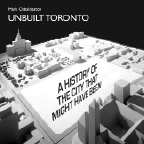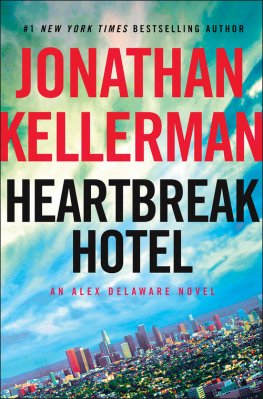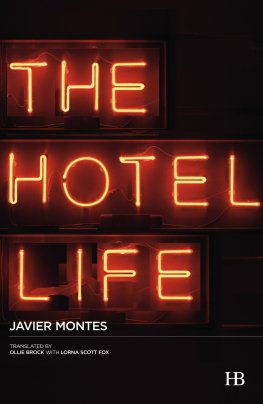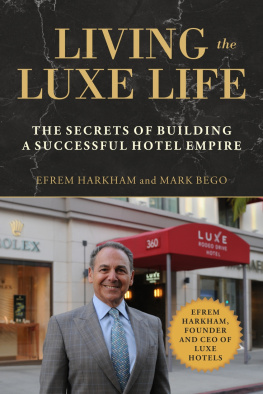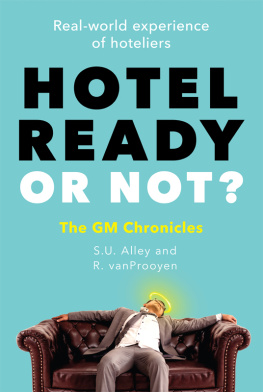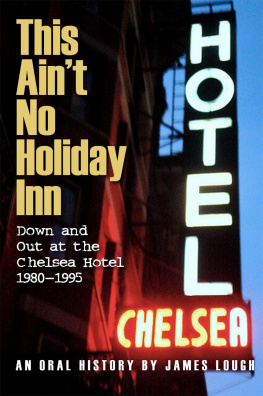Acknowledgements
Acknowledgements
M any thanks to the fine people at Dundurn Press, particularly president and publisher Kirk Howard and vice-president of marketing and sales Beth Bruder, who was my first contact at Dundurn. I will be forever grateful for their interest and support. I would also like to thank associate publisher and editorial director Michael Carroll, a calm and supportive editor who made this book better; director of sales and marketing Margaret Bryant; and designers Courtney Horner and Jesse Hooper. From that first lunch at the Scotland Yard pub on The Esplanade, I was instantly at ease with everyone at Dundurn. I knew The Suite Life was in the hands of the right publisher because the company embraced it not just as a book project but understood the whole spirit of it, as well.
Deep, heartfelt thanks go out to my wonderful Fairmont Royal York family without you none of this would have been possible, not just the book but the very dream itself. So thanks to Fairmont regional vice-president and Royal York general manager Heather McCrory, whose early encouraging words on this material were very meaningful, in fact, crucial, to the process; to my good friend Mike Taylor, public relations director of Fairmont, who first uttered those three magical words writer-in-residence; to Melanie Coates, who is everything from my sounding board to my guardian angel; to Kolene Elliott, who is one of the smartest and most resourceful hotel people Ive ever encountered; to Serge Laroche, whose patience and understanding made a world of difference; to the very good people in the Fairmont Royal York Health Club Jeannie Gallant, Alison, Soaria, Will, and especially Josh Stone, my good friend whom I bounced off whatever I was working on for his reaction. Anyone who loves All in the Family as much as I do is a wit I can trust without hesitation. Every single day during the researching and writing of this book began with Josh, and I thank him for his friendship and support. And, finally, thanks to the maids who work the ninth floor of the Royal York you take such great care of me!
Thanks always to my family, father Bill Heard, mother Marie Heard, and brother Peter Heard.
Special thanks to the beautiful Rhonda Thain. For three books now (and counting), your love and support and comforting touch were extremely meaningful to me. I only hope a little of those things flowed back to you from me during these busy days.
Thanks also to my friend and fellow author Michael Coren for all his encouragement and support (and promotion).
Thanks to Ann Layton of Siren Communications, my fellow hotel lover and good friend. Many of the hotels described in this book I experienced because of you.
Special loving thanks to my beautiful little girl, Isabelle. It was through her inspiration that I was able to see this wonderful place and this magnificent experience as the magical dream come true living and writing this book really was.
And thanks to the griffin on the northeast corner of the Royal York for keeping an eye on me by day and by night.
M y fascination with hotels, hotel living, and hotel culture began probably subconsciously when I heard my grandmother and grandfather (Annie and Raoul Godin) talk about the years they worked in a magical-sounding place called the Royal York Hotel. Life in this magic castle seemed unlike that of anywhere else, as if there was the life that swirled outside the doors and the life that had a different, dreamlike quality inside. Then later, when I began actually visiting the Royal York for weekend city excursions, I got a taste of the atmosphere first hand. We all know that life has a certain feel and that dreams have a quality of their own. Being in the Royal York was somewhere in between better than one but not as fleeting as the other.
The allure of the Royal York never seemed to wane for me. For my 18th birthday my parents treated me to a weekend at the hotel for me and my best friend to tear up the town for three days by ourselves. It was the first time I checked into the Royal York by myself. I remember that weekend as a time of bookstores and fast food and hanging around in the suite watching movies and enjoying the place. When I checked out, the desk person said, I hope we see you back here soon.
Even then I experienced the magnetism of the hotel, so I told her, Oh, Ill most certainly see you all again and often!
My love for hotels really ramped up when I started staying in many of the finest ones in the world to interview movie stars for television. I got to know hotels well, to appreciate what they felt like, and to understand what made great ones great and what made mediocre ones always chase but never attain that greatness. I rubbed shoulders with people who had accomplished what I was dreaming of doing actually living in a hotel. I could now ask the celebrities, the hotel managers, and sometimes the hotel owners about the magic of hotels.
By natural extension, because I was always a writer first and a TV guy second, I began writing about hotels and hotel living for various newspapers and magazines. Travel editors and hoteliers alike loved my take on hotels because I wasnt functioning as a hotel critic but as a hotel lover who wrote about the experience, the atmosphere, and the rhythm, not the thread count of sheets. With each new hotel experience I lived and each new hotel story I was told, another fibre was added to the fabric of my desire and dream to live in a hotel. I always knew that one day, without knowing when or under what circumstances, I was destined to fulfill my fantasy. Like Goethe once said, Be bold and mighty forces will come to your aid.
In the introduction I mentioned that one of the initial sparks of inspiration that led to this book was reading about Howard Hughes and his long-time love affair with hotels. However, the billionaires fascination didnt emerge in the last years of his life, as many believe, when he completely surrendered to his obsessions and compulsions. No, it actually began much earlier when Hughes hit Hollywood and became a director, producer, and mogul of sorts. He had a particular fondness for the renowned Beverly Hills Hotel, especially its famed pink stucco bungalows. In 1942 Hughes kept three or four bungalows on permanent reservation. He occupied one while his women, most often among them actress Jean Peters, had another. When Hughes was in residence at the Beverly Hills Hotel, the kitchen staff were told they should immediately make room for Hughess personal chef when he needed to use the kitchen. Apparently, Howards chef knew how to make his favourite pineapple upside-down cake, a duty the tycoon didnt entrust to anyone else.
It wasnt until the early to mid-1960s that Hughes, who had descended rapidly into a dark world of obsessive-compulsive disorders and paranoia, surrounded himself with Mormons as his aides and assistants. (Hughes believed Mormons could be trusted, since they were committed to a religious life and didnt drink, use drugs, or gamble.) He began to live permanently in one hotel after another, usually taking up an entire penthouse floor for himself and booking another entire lower floor to house his staff. In the 1960s, Hughes still operated his businesses, and when he embarked on his major hotel living phase, he had just been issued the largest personal cheque in U.S. history ($566 million) after selling Trans World Airlines (TWA).
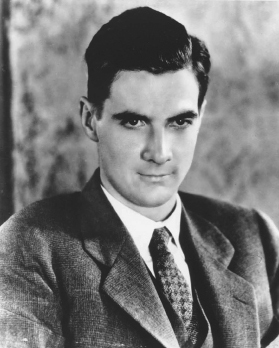
Billionaire Howard Hughes (19051976) was possibly the most eccentric long-time hotel resident who ever lived.
The action in Las Vegas around that time was really heating up. The city was starting to seem like the new Hollywood, or at least Tinseltowns looser and wilder sister. Hughes and his Mormon army headed to Las Vegas and the Desert Inn (which was demolished in 2002 to make way for the Wynn Las Vegas Resort and Casino that stands in its place today), but the welcome wasnt exactly warm and open-armed. The owner of the Desert Inn was a Las Vegas swashbuckler named Barney Moe Dalitz, who had been a friend of another Vegas buccaneer (actually, a stone-cold killer) named Benjamin Bugsy Siegel, who had built the Flamingo Hotel with Mafia money and was murdered by his gangster pals when the return on their investment wasnt what he had promised. Dalitz was very concerned about Hughes and his Mormon squad taking up so much of his hotel, especially with Christmas and the lucrative holiday season approaching. A deal was struck between Dalitz and Hughes. The billionaire could take over the top floor of the hotel for himself and one a few floors below for his staff, but they all had to be out on December 1. Hughes moved in and found it very much to his liking, so when December 1 came and went, he and his posse were still there.

